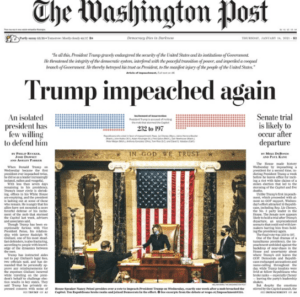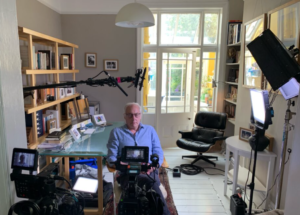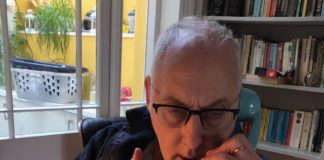- Massaging the truth - 27th February 2026
- ‘It’s the new economy, stupid…’ - 27th February 2026
- Eyes right… - 26th February 2026

The awful rioting we have seen in UK cities was sparked by a lie on social media, and here our Editor Phil Parry looks at how in his experience spreading falsehoods was rare, but had terrible consequences when it happened.
Outright lying almost never happens, especially by politicians.
The effects, though, can be devastating (as we are seeing in today’s riots), because people become angry believing something which is just plain wrong, and it is extremely difficult to argue against someone who is convinced that black is white (or in this case think the police discriminate against white people, which they don’t).

An exception is Donald Trump.
He appears to lie and spread falsehoods with gay abandon.
During and after his term as President of the United States (POTUS), Mr Trump made 10s of thousands of false or misleading claims.
The Washington Post‘s fact-checkers documented 30,573 false or misleading claims during his presidential term, an average of about 21 per day.
 The Toronto Star tallied 5,276 false claims from January 2017 to June 2019, an average of 6 per day.
The Toronto Star tallied 5,276 false claims from January 2017 to June 2019, an average of 6 per day.
Commentators and fact-checkers have described the scale of Mr Trump’s dissembling as “unprecedented” in American politics.
Scholarly analysis of Mr Trump’s tweets found “significant evidence” of an intent to deceive.
I have never found this.


Politicians would almost never tell a bare-faced lie during an interview, because they knew it might come back to haunt them and create havoc.
Other methods would be used instead, like not answering the question, but replying with what he or she wanted to declare anyway.
So you would say: “Why is poisonous waste being dumped?”.

But the response from the politician would then be something along the lines of: “We are doing a great deal to improve our environment, blah, blah, blah…”.
Another technique would be distraction.
I remember after filming for BBC Cymru Wales Today (WT) an illegal daubing of the old Welsh Office (EO), a senior politician was before me.

I was preparing to give him a hard time because he might defend their actions.
Yet before the camera was rolling, he whispered: “That’s a nice tie, where did you get it?”. I was, of course, completely flummoxed and stuttered out my ‘hard-hitting’ questions!
A direct lie only ever happened to me once, when a South Wales Valleys Labour MP proclaimed: “There aren’t any”, after I had questioned him with: “Why don’t you put workers on boards, like they do in Germany?”.

This was a total lie. I knew there were lots of them because of an official policy of ‘Codetermination’ which was a concept that involved the right of workers to participate in management of the companies they worked for.
This has been put centre stage for me with the rioting where politicians (by and large) haven’t actually lied, although there have been complete lies on social media.

The spark for the first riot, which took place in Southport the day after the murders of three girls, was a lie on social media, claiming that the attacker had been a Muslim who had arrived in the UK illegally on a small boat and who was on a terror watch-list.
In fact, the 17-year-old charged with the crime was born to Rwandan parents in Cardiff.

So watch out for politicians squirming and refusing to answer a direct question (although not actually LYING) when they’re in the spotlight, but social media revealing utter LIES!
It’s a pity that so many people appear to believe these…
The memories of Phil’s decades-long award-winning career in journalism, as he was gripped by the rare disabling condition Hereditary Spastic Paraplegia (HSP), have been released in a major book ‘A GOOD STORY’. Order it now!

Regrettably publication of another book, however, was refused, because it was to have included names.
Tomorrow – throughout his journalistic career, knowledge of the relevant laws has always been paramount for Phil, and now this is underlined by a new book which calls for legal reform.











